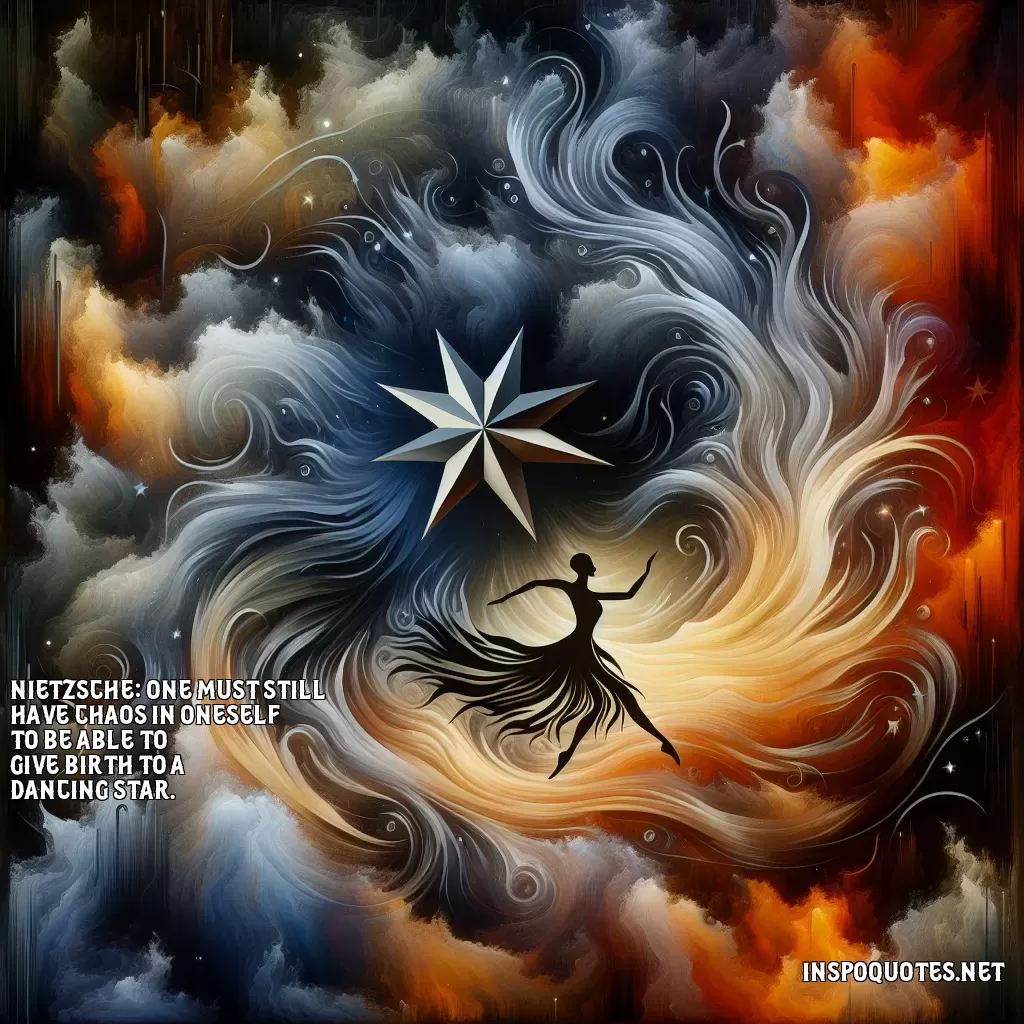
Nietzsche: One must still have chaos in oneself to be able to give birth to a dancing star.
Author: Friedrich Nietzsche
👁️ 10 views

Nietzsche: One must still have chaos in oneself to be able to give birth to a dancing star.
👁️ 10 views
Friedrich Nietzsche's quote, "One must still have chaos in oneself to be able to give birth to a dancing star," is a profound reflection on the necessity of chaos and disorder as precursors to creativity and innovation. In Nietzsche's metaphor, "chaos" represents the inner turmoil, confusion, or complexity that individuals often experience. This chaos can be akin to a realm of unstructured thoughts, ideas, and emotions that are not yet organized or understood. On the other hand, the "dancing star" symbolizes the beautiful, unique creation or emergence of something meaningful and significant. It suggests a creation that is lively, original, and full of energy—qualities often associated with stars, which are celestial bodies that shine brightly in the vastness of space. Nietzsche is suggesting that creativity and innovation do not arise from order and stillness alone. Instead, they often require a period of turmoil and dynamic activity within the self. It is through engaging with and navigating that inner chaos that individuals can access deeper levels of creativity. This process can lead to the birth of new ideas, perspectives, and works of art that are vibrant and full of life. In this context, the quote emphasizes the importance of embracing one's inner chaos instead of suppressing it. It serves as an encouragement to allow oneself to experience and channel these tumultuous energies productively, leading to the creation of something extraordinary. Thus, it highlights a common paradox: from disorder and complexity can come the most beautiful forms of order and clarity.
Quote By: Friedrich Nietzsche
Friedrich Nietzsche (1844-1900) was a German philosopher, cultural critic, and poet, renowned for his profound exploration of morality, religion, and the human condition. His provocative ideas, including the concepts of the "Übermensch" and the "will to power," challenged conventional beliefs and laid the groundwork for existentialism and postmodernism. Nietzsche's influential works, such as "Thus Spoke Zarathustra" and "Beyond Good and Evil," continue to inspire and provoke thought in various fields, including philosophy, literature, and psychology.
Bio added on: 2025-02-13 14:46:06